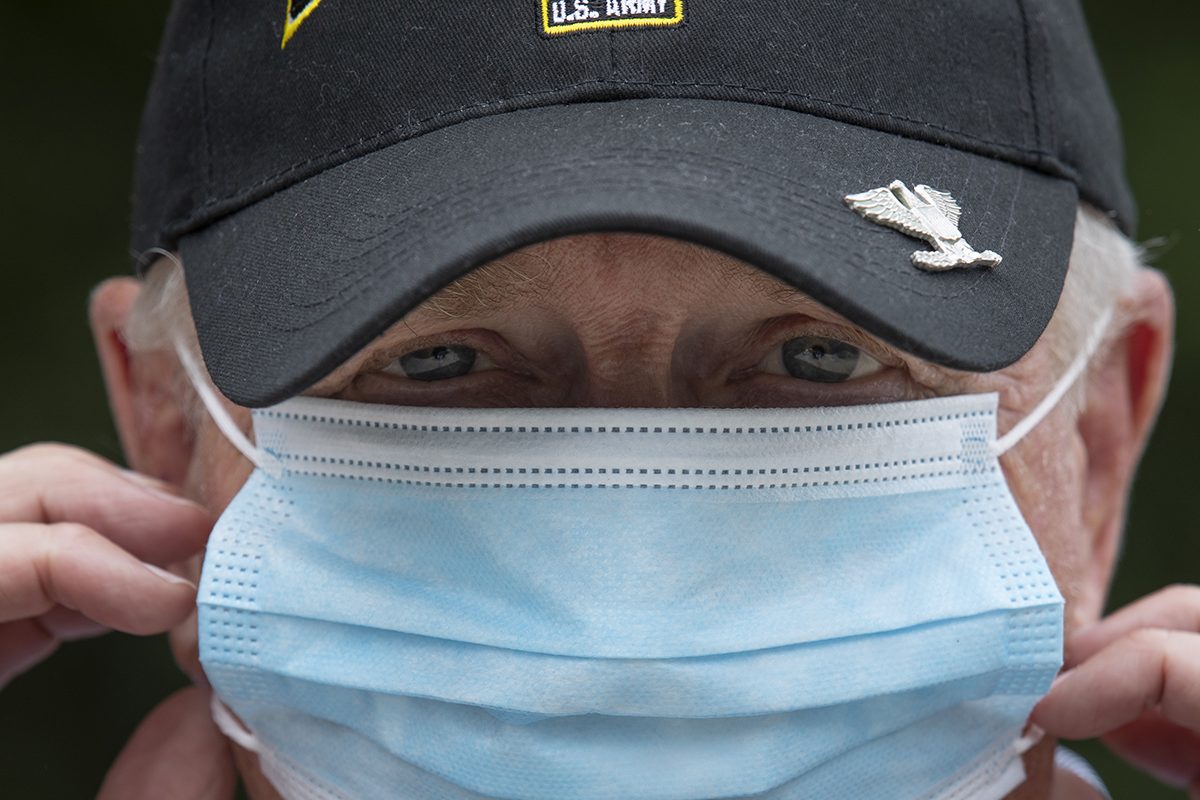
Dennis Shingleton encourages cooperation in his role as city councilman. Photo by Joyce Marshall
Dennis Shingleton Uses Councilman Position to Battle Coronavirus
Decades of health care experience helped the veteran prepare Fort Worth for Covid-19.
In facing the greatest public health crisis it has ever encountered, the Fort Worth City Council began relying on the input and expertise of one of its own. Dennis Shingleton ’92 MBA set up field hospitals in the military before overseeing operations at a medical school in Fort Worth.
“You could say Dennis was really in the right place at the right time to help Fort Worth through Covid-19,” said Jungus Jordan ’70, another longtime city councilman.
A pharmacist by education and training, Shingleton succeeded in the armed forces, in higher education and now in the political arena thanks to a potent work ethic along with superior communication and problem-solving skills.
All of that would come into play on March 23, 2020, when Shingleton, Fort Worth Mayor Betsy Price and other city council members issued a shelter-in-place order, effectively shutting down the 13th largest city in the United States.
Service-oriented
Both shutting down and reopening a city, Shingleton said, share several essential characteristics with setting up a field hospital. For the best possible outcome, those in charge of the effort must communicate, coordinate and, in many cases, compromise.
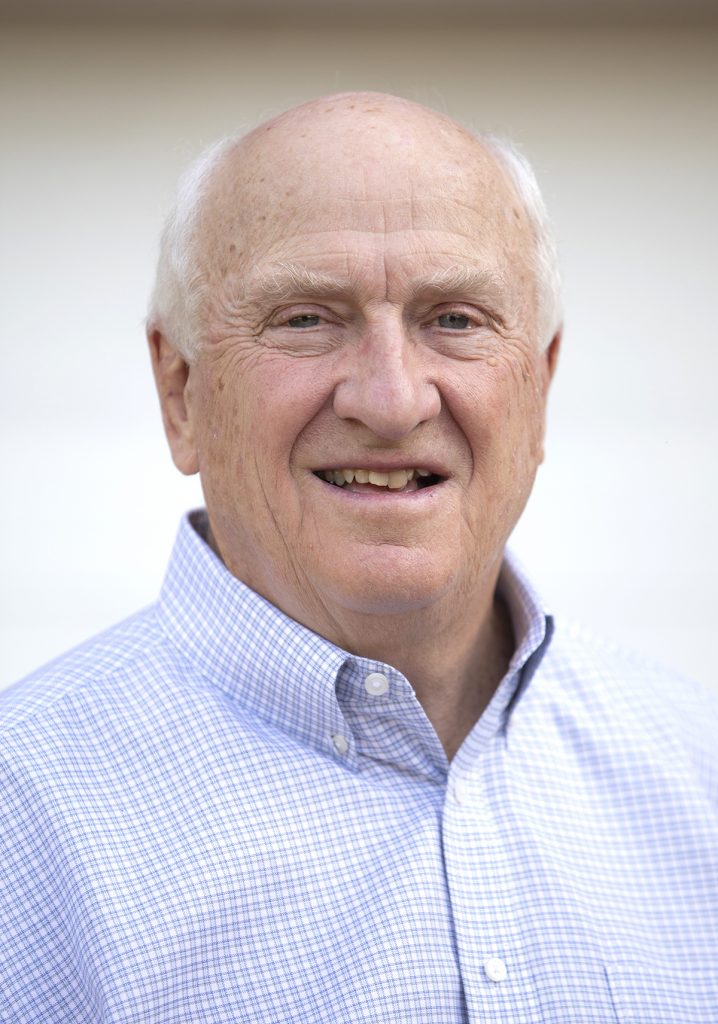
Dennis Shingleton, a pharmacist by education and training, leveraged his health care experience during the Covid-19 pandemic. Photo by Joyce Marshall
As the oldest of six children in a close family, Shingleton has had a lifetime to hone his natural leadership abilities.
After stints in the U.S. Army and Navy, he moved to the Army Reserves while also serving as senior associate dean for finance and administration at the University of North Texas Health Science Center’s Texas College of Osteopathic Medicine.
Years working at the medical school gave him connections to many of the Fort Worth-area hospitals.
As an expert in health care and health care delivery, Shingleton helped Fort Worth prepare in the spring for a New York City-type scenario: hospitals overflowing with patients sick or dying from Covid-19. Shingleton strategized with fellow leaders to come up with and assess worst-case plans.
He met with physicians, hospital administrators, emergency services personnel, law enforcement, the Fort Worth fire chief, the code compliance chief and public health officials to orchestrate a citywide effort that included the sharing of critical resources.
“I can’t tell you how many stories there were along the lines of how JPS [John Peter Smith Health Network] needed something and Texas Health Resources ponied up to lend it,” Shingleton said. “That kind of cooperative nature has made a great deal of this unfortunate situation at least workable.”
For setting up field hospitals, which Shingleton did for years all over the world, location trumps everything else in order for patients to receive the help they need in a timely manner.
So he helped set up the Fort Worth Convention Center as a homeless shelter. Teams placed cots 6 feet apart, then housed and treated those with Covid-19 in nearby rented RVs.
Shingleton described the real heroes in this fight as the physicians, nurses and other health care workers who provide aid to the desperately ill around the clock.
“When you think about the medical staff working with patients sick with this virus, you think about the incredible courage but also about stamina,” Shingleton said. “Bravery is one thing, but stamina is sometimes harder to control, like when you’re so damn tired you can’t see.”
New Chapter
Shingleton’s ascent to one of Fort Worth’s top elected offices began in 1987, the year he relocated to the area to take the medical school job. He and Cindy, his wife of nearly 50 years, purchased a house in Lake Worth, Texas, that they still live in today.
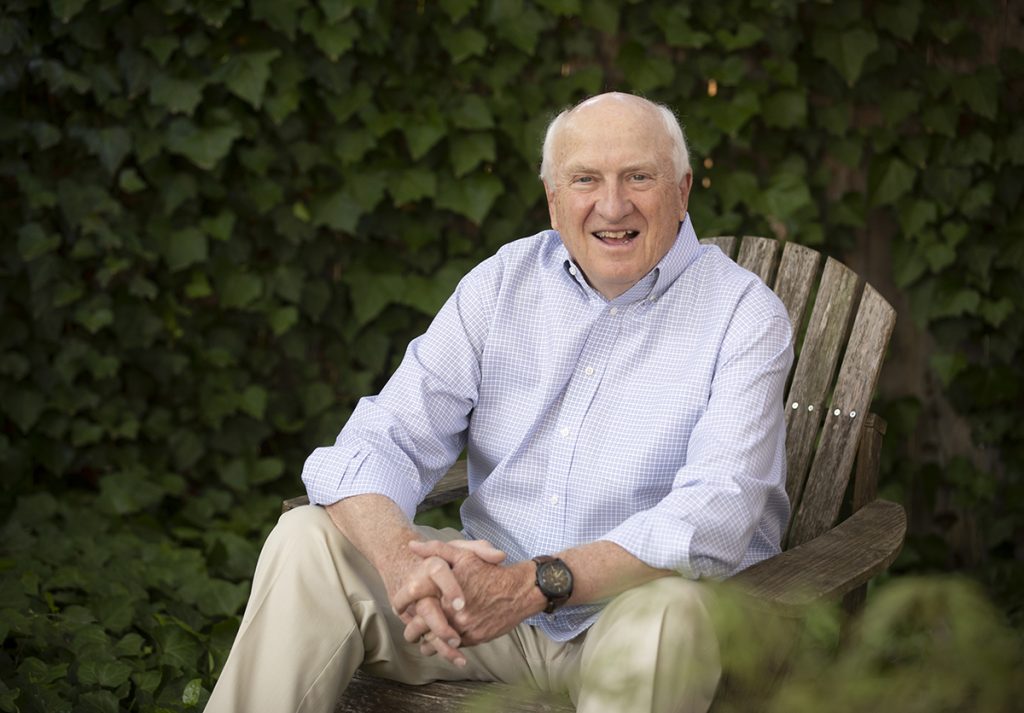
Dennis Shingleton holds the District 7 seat in the Fort Worth City Council. Photo by Joyce Marshall
At the time, their new home was considered outside the jurisdiction of Fort Worth. Twelve years later, Singleton’s first foray into politics was as president of his property owners’ association, encompassing about 1,400 homes in his part of town.
When the city of Fort Worth moved to annex the neighborhood, Shingleton successfully negotiated to keep some of the community’s resources, and was subsequently asked to serve on the Fort Worth City Plan Commission. He did so for nine years, chairing the group for five.
Shingleton’s predecessor on the city council recruited him to take over the District 7 seat. The district includes the northwest part of Fort Worth.
That first election, Shingleton faced four opponents and had a runoff. He and Price were sworn in on the same evening in June 2011. Five years later, he was appointed mayor pro tem.
“With Dennis you’ve got a guy who takes public policy very seriously, but he doesn’t necessarily take himself very seriously,” said David Cooke, Fort Worth city manager.
“He’s the one who wants to lighten the room,” Cooke added. “He’s got a good sense of humor and a great approach to work and to life and to public policy.”
The city has seen unrivaled growth during Shingleton’s time on the council.
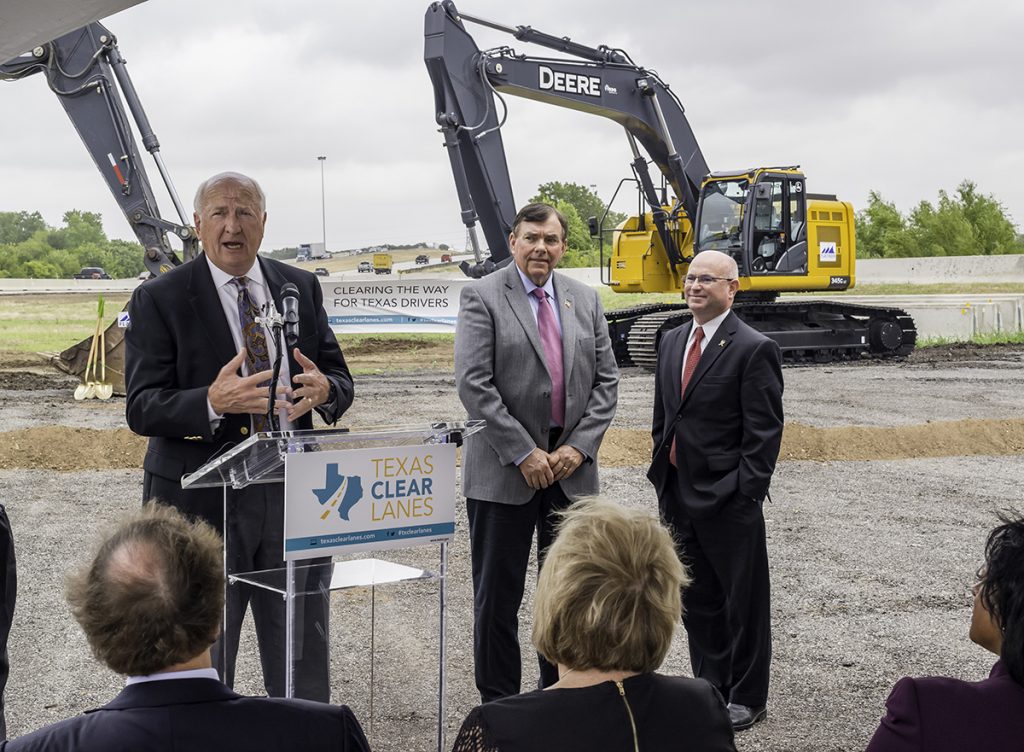
Dennis Shingleton speaks at a groundbreaking for additional road lanes in Fort Worth’s growing north side. Courtesy of Dennis Shingleton
New census numbers should confirm what city officials like Cooke estimate is the addition of 150,000 to 200,000 citizens during the last decade. In 2018, the federal government estimated the city’s population at 895,000.
Unlike many other big-city governing bodies, the Fort Worth City Council has a reputation for remaining amicable, even in the face of disagreements among members.
“We are certainly not all of the same political persuasion, but we hack it out until we get into some common ground and there it stands,” Shingleton said.
“We work for the common good, and Dennis has been a true leader in making that happen,” said Jordan, who represents District 6. “For him, it’s more about public service than being a politician.”
Shingleton’s leadership, Jordan noted, has never proven more critical than during the national emergency brought on by the novel coronavirus.
Decision-maker
Beginning in March, the eight Fort Worth council members and the mayor met virtually for daily briefings.
Shingleton, who has a brother in Louisiana in the restaurant business, felt particularly grieved at the prospect of closing eateries.
“We had to take the standpoint that resources are something to cherish and guard and protect,” said Shingleton, a father of three and grandfather of 12.
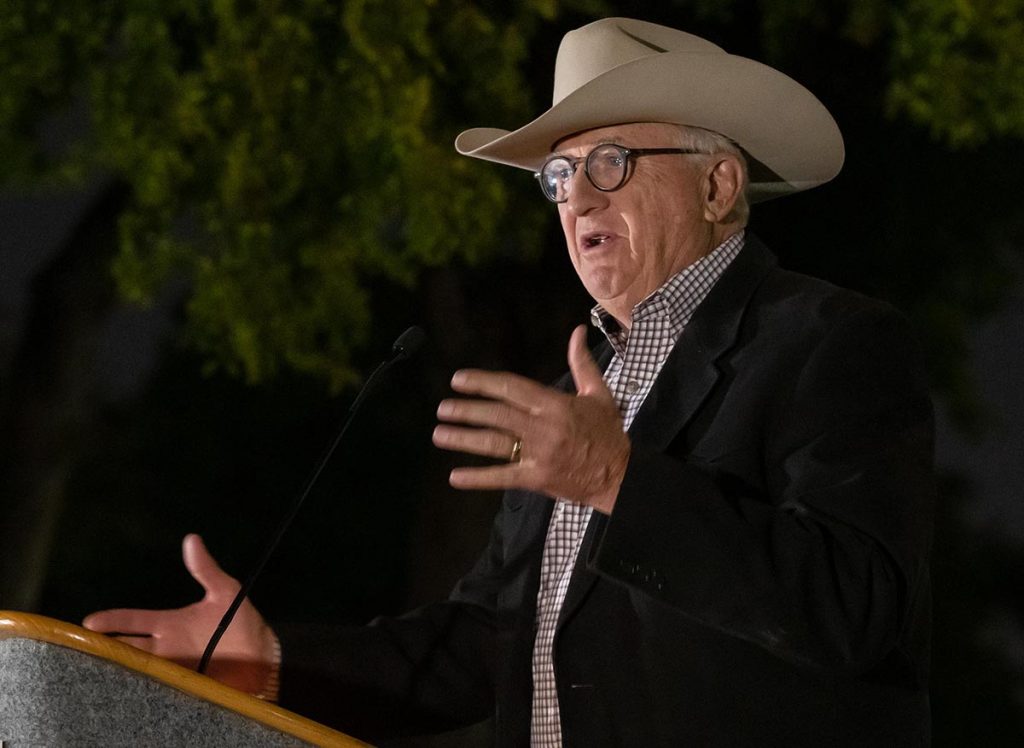
Dennis Shingleton regularly speaks at expansion celebrations such as ribbon cuttings and grand openings in his district. Courtesy of Dennis Shingleton
Some of his constituents — including a number of close friends — complained.
Shingleton, who has yet to announce reelection plans for May 2021, regularly communicates with those who fear for their livelihoods and the economy at large. Some knock on the door of his home, hoping for a word. Others call, email or send messages through social media.
“When we’re talking, I try to be calm and sincere and impress upon them the severity of potential consequences to others,” Shingleton said.
He remains optimistic that Americans will rebound from the pandemic.
“I am convinced that economically we are going to bounce back,” he said. “And I am convinced that the health care delivery system in this country, which is the best of the world bar none, can come up with solutions to keep us all safe.”

Your comments are welcome
Comments
Related reading:
Features
How Covid-19 Has Altered University Life
College goes virtual during the coronavirus pandemic and disrupts plans for graduating seniors.
Mapping the Coronavirus
Emma Hodcroft says warmer weather may slow the virus, but that doesn’t mean it’s contained.
Campus News: Alma Matters, Letters
Chancellor Responds to Coronavirus Challenges
There was no playbook for the spring semester of 2020.